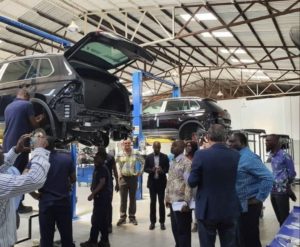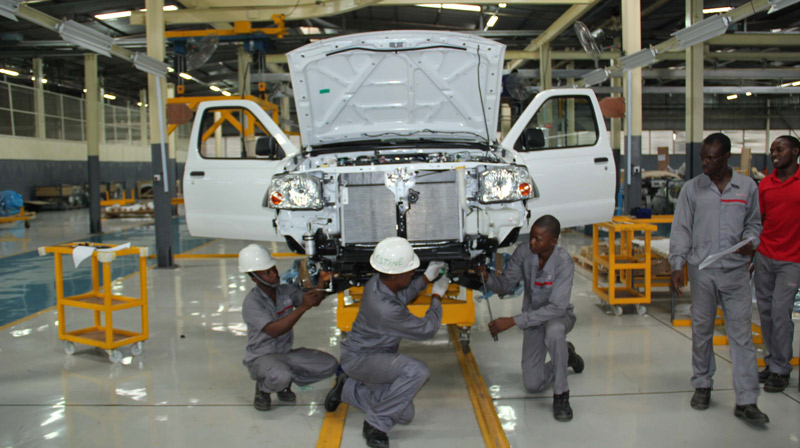The positive developments in Ghana’s metals sector, steel and aluminum output has increased and also raised the potential for the country’s budding autos industry to move up the automotive production value chain.
A report by Fitch Solutions revealed that the construction of an aluminium metals casting factory and the expansion of a steel production plant, “which is set to increase Ghana’s steel output by 75% by 2021”, will create opportunities for automotive component manufacturing in the country.
“We believe developments in Ghana’s metals sector (steel and aluminium in particular) raises the potential for the country’s nascent autos industry to move up the value chain.
“ A couple of automakers have begun the assembly of vehicles in the country and we highlight the small market for new vehicles to lead to the export market becoming crucial for Ghana’s nascent automotive assembly operations in the early stages as the local new vehicle market develops”.
Commenting on the growing pace of the metal sector, it suggested that President Akufo-Addo laid the foundation of an aluminium metals casting factory and CNC machine tooling centre, which it stated “creates opportunities for automotive component manufacturing in the country”.

“The trend towards light weighting in the autos industry raises opportunities for more aluminium content in vehicles especially as Ghana’s automotive industry develops further. With the potential to tap into the after-market vehicle sales industry with the supply of replacement parts”.
Reliving some monetary injections into the steel industry, it posited that the International Finance Corporation signed loan agreement with Rider Iron and Steel Limited for the expansion of a steel production plant and this is set to increase Ghana’s steel output by 75% by 2021.
According to Fitch, this further “raises the opportunity for local component manufacturing in the country”.
One of the impediments highlighted in the report includes the current skills shortage in Ghana’s steel sector importing labour, on the job training and increased skills output from vocational schools.
The credit rating agency claimed that the lack of local skills “limits the potential for rapid development of the steel sector in supplying the autos industry”.
With Volkswagen and China’s state-owned, Sinotruck, assembly of vehicles in the country, and Toyota still in the process of completing its vehicle assembly plant and Nissan set to begin assembly soon, Fitch reckons this harbors well for the country as it “creates opportunities for these automakers to utilise domestic aluminium and steel autos related products, thus enabling the automotive industry to potentially utilise locally sourced metals”.
“We also expect the incentives offered by the Ghanaian government to the autos industry through its Automotive Development Policy to encourage automakers to shift from Semi Knocked-Down to Completely Knocked-Down vehicle assembly, which requires more value addition.
“As incentives for the former includes a five-year corporate tax break while the latter makes provisions for a 10-year corporate tax holiday which also creates opportunities for tier-2 component suppliers to diversify their offerings to supply Ghana’s growing autos industry while giving room for tier-1 suppliers to enter Ghana’s autos industry as vehicle output increases”.
Citing the likes of Kenya championing and sustaining dominance in the East Africa and South Africa maintaining its position to supply the Southern African region, the report harbored greater prospect for Ghana as Nigeria has “not captured the appeal of automakers due to policy uncertainty and a tough operating environment”.
“We therefore expect Ghana to cement its position as a West African automotive production hub in the coming years”.





















